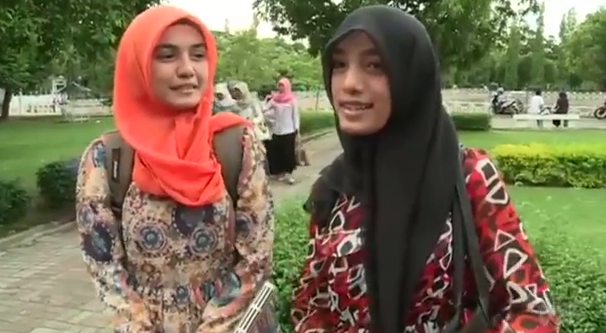Indonesia: Aceh Province Enforces Sharia for non-Muslims

The government of Indonesia's Aceh province has approved a new law obliging every citizen to follow the sharia Islamic legal code regardless of their religion.
Councillor Abdulah Saleh told the Jakarta Post that the new behaviour law, or qanun jinayat, "does indeed oblige everyone in Aceh to follow sharia without exception."
Saleh said that the qanun stipulated that all those found to have violated sharia would be tried under Islamic law regardless of their religion.
Non-Muslim violators of Indonesia's national ciminal code (KUHP) will be given the option to choose between a sharia court or a regular court - but both courts will adhere to islamic legislation.
"If the violation committed by a non-Muslim is not regulated in the KUHP then the violator will automatically be tried in a sharia court, without exception" Saleh continued.
Violations of sharia that are not mentioned in the KUHP include drinking liquor, khalwat (affectionate contact between an unmarried couple), not wearing a headscarf or wearing tight pants for women.
Anyone found drinking alcohol or breaching the codes on moral behaviour, whether residents or visitors to Aceh, could face between six and nine lashes of the cane. Three violations of the dress code could lead to nine lashes.
The qanun jinayat was approved by the legislative council on 13 December and signed by Governor Zaini Abdullah. It was a revision of the controversial 2009 Qanun Jinayat that introduced the punishment of stoning to death.
According to Saleh, the application of sharia is based on the principle of justice for all, as Muslims would feel they were being treated unfairly if non-Muslim violators were not tried under the same law for the same violations.
"It would be unfair if Muslims were punished while non-Muslims were not, just because sharia violations are not stipulated in the Criminal Code," Saleh said.
Key articles in the Qanun Jinayat
The sharia authorities will have the power to arrest suspected violators, and confiscate and conduct raids on their property, based on preliminary evidence.
Non-Muslim or military suspects will be tried in a sharia court unless the violation is covered by the Criminal Code (KUHP) or by the Military Code respectively.
Even if the sharia court acquits a defendant, he or she will be required to undergo rehabilitation.
Only one appeal may be filed with the sharia court.
Prison terms are for up to a maximum of 40 months.
Caning up to a maximum to 40 lashes.
Fines up to a maximum of 800 grams of gold.
© Copyright IBTimes 2025. All rights reserved.





















